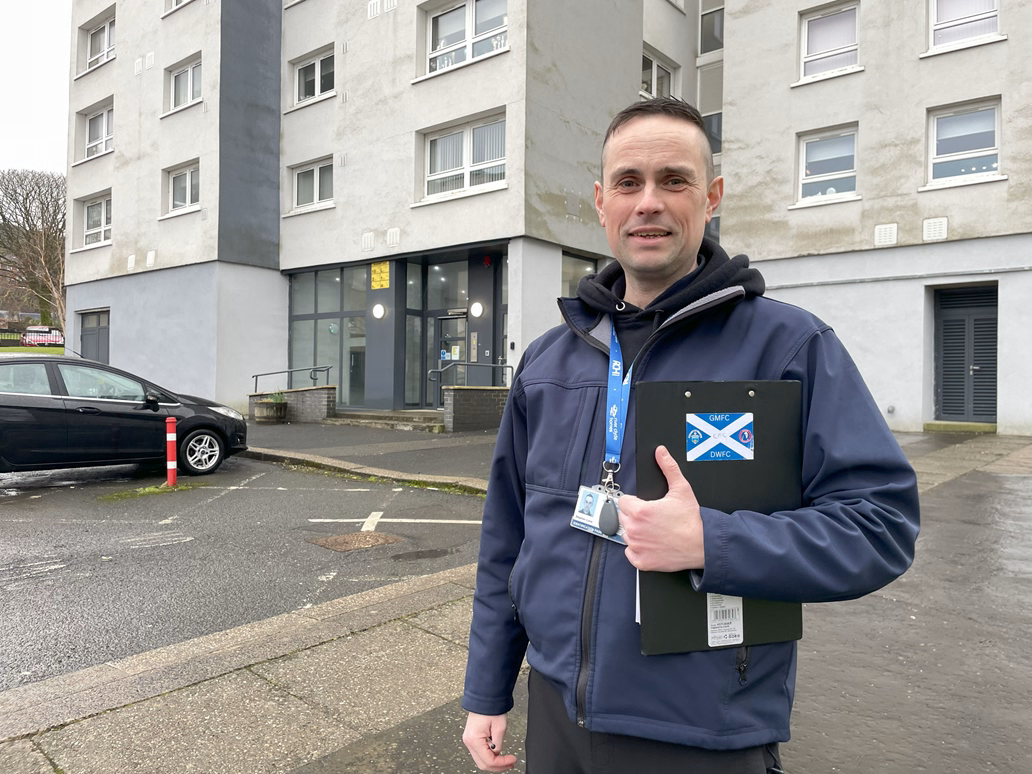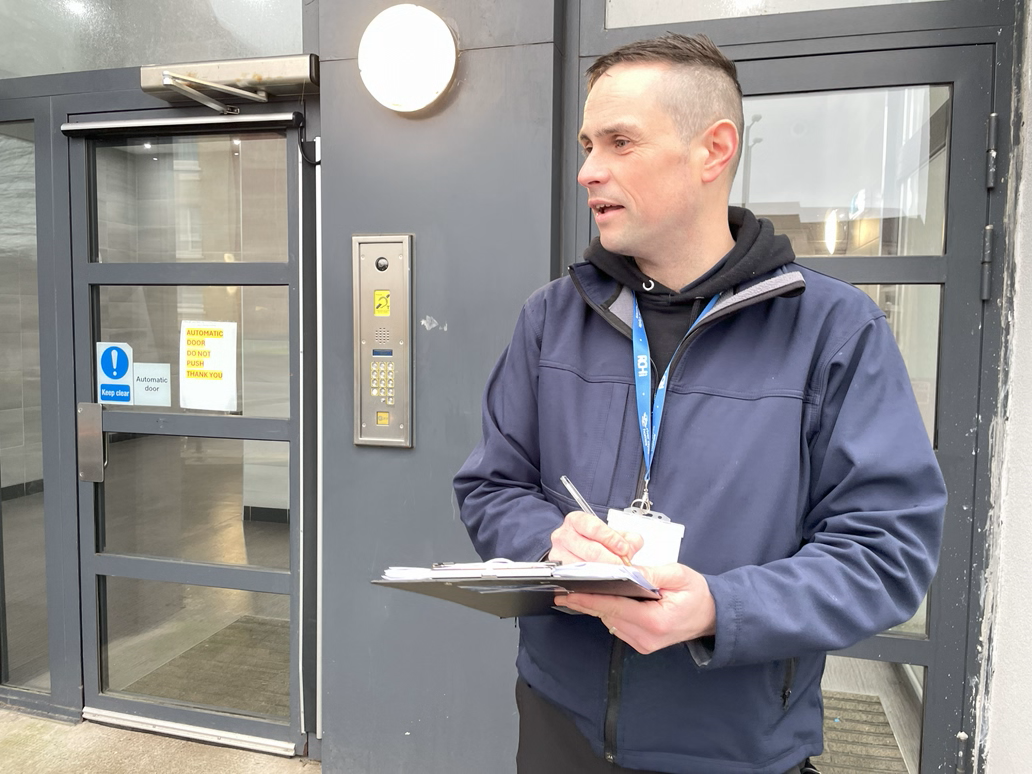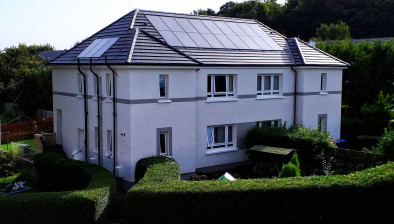The River Clyde Homes surveyor battling fuel poverty through retrofit

Stephen Love
As Glasgow’s Retrofit Action Week kicks off this week, across Scotland the urgent need to equip our homes for a warmer, greener future becomes ever clearer.
Figures released last month showed a worrying increase in fuel poverty thanks to rising energy bills, and campaigners hope that the Scottish Government will take further action as it tables its Heat in Buildings Bill later this year.
In Greenock, which falls in the Glasgow City Region area covered by Retrofit Action Week, local man Stephen Love pounds the streets checking out how he can get rid of cold homes and improve residents’ lives.
Love is a stock condition and energy surveyor for River Clyde Homes, an affordable housing provider that owns and manages over 6,000 homes in the area.
“I’m born and bred Greenock and its one of the biggest areas of fuel poverty and poverty in general in Britain,” he says.
“I was in poverty when I was a kid but I didn’t realise it. Greenock, Port Glasgow – I think it’s getting worse. Amazon has left, EE has dramatically downsized, IBM is away. Going back to my granddad’s days the shipyards downsized. I want to do what I can for these kids and these kids’ parents. I do what I can through my job, which is in housing.”
‘Seeing damp and mould up close’
Love has worked with River Clyde Housing in his current role for two years. Initially, he was carrying out external surveys, “cleaning gutters and so on”.
Since last September, he and a colleague have been taking a look inside the association’s homes to see how they can help to improve the fabric of the buildings and cut fuel poverty.
“That’s opened my eyes,” he says. “I’m seeing damp and mould issues first hand and on a daily basis. We are out as a team to do a full survey of the property’s energy use. It gives us an accurate real-time view of what the house needs.
“We look at external wall insulation, cavity wall insulation – which gets a bad name because it’s often installed incorrectly – and we look at other ways of reducing heat loss.”

Love’s job is to recommend short-term fixes, such as upping the depth of loft insulation from a standard 200mm to a more efficient 400mm, or servicing the seals on a tenant’s windows to ensure draughts don’t get in.
He also suggests longer-term solutions, which could not only cut tenants’ heating bills but help reduce greenhouse gas emissions. “New ways of heating could be electric heat pumps, geothermal heating, joining to district heat networks or putting in small-scale heat networks in areas that we already own,” he explains.
Making clean energy affordable
“But the big thing is making it affordable for the tenant. There’s no point in putting brand new technologies in properties that can’t contain the heat.”
Love is passionate about using whatever means necessary to get his clients’ homes warmer – he mentions a robot that could help his team get under floors to put in insulation, for example. And there are already examples in the River Clyde Homes portfolio where ‘retrofit’, essentially the process of re-fitting existing housing stock to higher energy performance standards, has been carried out.
One example is at Prospecthill Court, home to 91 households. It was already running on a low-carbon district heating network that provides heat and hot water from biomass at a cheaper cost than mains electricity.
Last year the flats were treated to a makeover with new, rainproof cladding and triple-glazed windows that provided better insulation. The changes were designed to reduce the energy demand from around 16,750 kWh a year per flat to around 2,680 kWh – a reduction of over 80%, according to RCH.
What’s important about works like these, says Love, is making sure the people living in the homes know how to make the most of any new technology.
“We all need educated on new technology, such as heat networks or heat pumps,” he explains. “They create a constant temperature and some tenants may not be aware of that – educating them is the first stage of helping them with their comfort levels and helping them out of fuel poverty.”
“For me, growing up with damp and mould was normal, but it shouldn’t have to be like that,” he adds.
“If I can help one family get a warmer home then I’ve succeeded.”





















